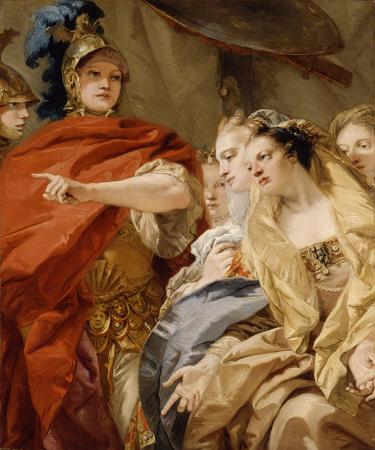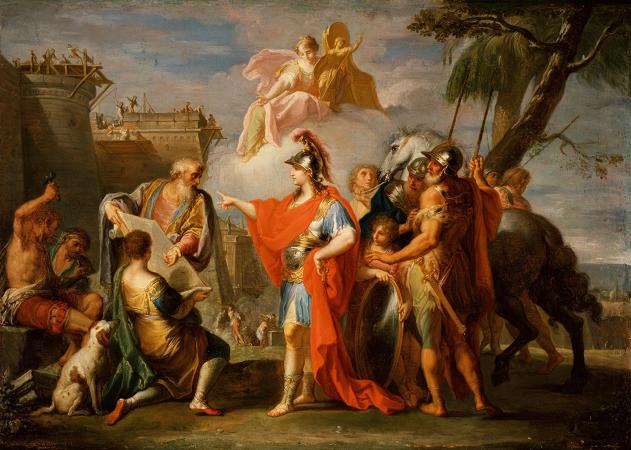Alexander the Great (-356 - -323). Alexander III of Macedon, commonly known as Alexander the Great, was a king of the ancient Greek kingdom of Macedon and a member of the Argead dynasty. He was born in Pella in 356 BC and succeeded his father Philip II to the throne at the age of 20. He spent most of his ruling years on an unprecedented military campaign through Asia and northeast Africa, and by the age of thirty, he had created one of the largest empires of the ancient world, stretching from Greece to northwestern India. He was undefeated in battle and is widely considered one of history's most successful military commanders. During his youth, Alexander was tutored by Aristotle until age 16. After Philip's assassination in 336 BC, he succeeded his father to the throne and inherited a strong kingdom and an experienced army. Alexander was awarded the generalship of Greece and used this authority to launch his father's pan-Hellenic project to lead the Greeks in the conquest of Persia. In 334 BC, he invaded the Achaemenid Empire and began a series of campaigns that lasted 10 years. Following the conquest of Anatolia, Alexander broke the power of Persia in a series of decisive battles, most notably the battles of Issus and Gaugamela. He subsequently overthrew Persian King Darius III and conquered the Achaemenid Empire in its entirety. At that point, his empire stretched from the Adriatic Sea to the Beas River. Alexander endeavoured to reach the ends of the world and the Great Outer Sea and invaded India in 326 BC, winning an important victory over the Pauravas at the Battle of the Hydaspes. He eventually turned back at the demand of his homesick troops, dying in Babylon in 323 BC, the city that he planned to establish as his capital, without executing a series of planned campaigns that would have begun with an invasion of Arabia. In the years following his death, a series of civil wars tore his empire apart, resulting in the establishment of several states ruled by the Diadochi: Alexander's surviving generals and heirs. Alexander's legacy includes the cultural diffusion and syncretism which his conquests engendered, such as Greco-Buddhism. He founded some twenty cities that bore his name, most notably Alexandria in Egypt. Alexander's settlement of Greek colonists and the resulting spread of Greek culture in the east resulted in a new Hellenistic civilization, aspects of which were still evident in the traditions of the Byzantine Empire in the mid-15th century AD and the presence of Greek speakers in central and far eastern Anatolia until the 1920s. Alexander became legendary as a classical hero in the mould of Achilles, and he features prominently in the history and mythic traditions of both Greek and non-Greek cultures. He became the measure against which military leaders compared themselves, and military academies throughout the world still teach his tactics. He is often ranked among the most influential people in history. Alexander was born in Pella, the capital of the Kingdom of Macedon, on the sixth day of the ancient Greek month of Hekatombaion, which probably corresponds to 20July 356 BC, although the exact date is uncertain. He was the son of the king of Macedon, Philip II, and his fourth wife, Olympias, the daughter of Neoptolemus I, king of Epirus. Although Philip had seven or eight wives, Olympias was his principal wife for some time, likely because she gave birth to Alexander. Several legends surround Alexander's birth and childhood. According to the ancient Greek biographer Plutarch, on the eve of the consummation of her marriage to Philip, Olympias dreamed that her womb was struck by a thunderbolt that caused a flame to spread far and wide before dying away. Sometime after the wedding, Philip is said to have seen himself, in a dream, securing his wife's womb with a seal engraved with a lion's image. Plutarch offered a variety of interpretations of these dreams: that Olympias was pregnant before her marriage, indicated by the sealing of her womb; or that Alexander's father was Zeus.
more...













